Abandoned Imber church to ring bells on Christmas Day
- Published
Church bells in a deserted Wiltshire village will ring on Christmas Day for the first time in more than 70 years.
The Army took over Imber on Salisbury Plain during World War II to use the area for training.
Local residents were made to move out and were never allowed back. It has been used by the military ever since.
For the first time, they are allowing access on 25 December so bellringer Jenny Hancox can ring the church bells on her birthday.
'Sad story'
In 1943, people living in the village were told to leave so the Army could prepare for D-Day, and the village now resembles a ghost town.
The military allows access to the abandoned village on a handful of occasions each year.
"It is a very sad story but we're certainly making history on Christmas Day," said Neil Skelton, custodian of St Giles Church.
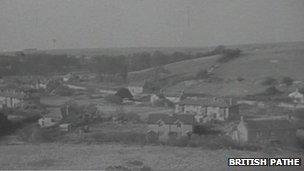
Imber residents were forced to leave the village in 1943
"The original bells were taken out in 1950 when all the furnishings and fittings were dispersed to other churches.
"The Diocese of Salisbury was planning to demolish the church. That didn't happen."
In August 2010, a group of "enthusiastic" bell ringers - which included Mr Shelton - installed some new bells.
Ms Hancox said she was "very happy" about fulfilling her ambition of ringing the bells of the 700-year-old St Giles Church on her special day.
"My birthday is on Christmas Day and it's very rare that I get to ring on that day for me," she added.
Church future
"I thought it would be a nice place to ring for my birthday.
"I usually ring at Lacock, Corsham and Melksham - it will be a band from that area that will be ringing with me on Christmas Day."
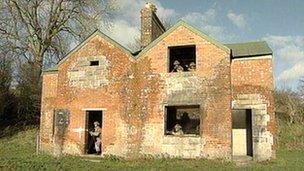
The Army has been training in the deserted buildings in Imber since World War II
The group will ring a quarter peal at the Grade I-listed church, which is due to last about 45 minutes. It will be open to the public.
Despite £3,000 being spent on the church over the last eight years, Mr Shelton said it was "extremely unlikely" that it would come back into permanent use.
"One never knows. It's been repaired and it's all in good order," he added.
"So should the village ever come back into use the church is ready to go back into full use. But I think if it ever does happen it's a long way in the future."
- Published29 September 2012
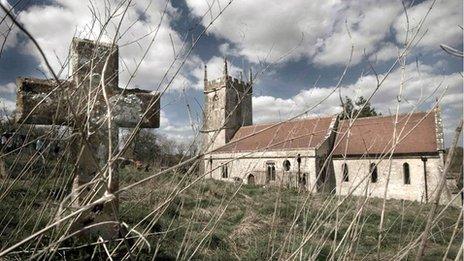
- Published9 April 2012
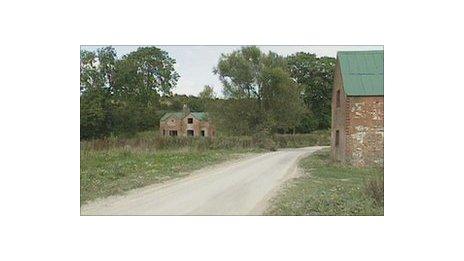
- Published12 November 2011
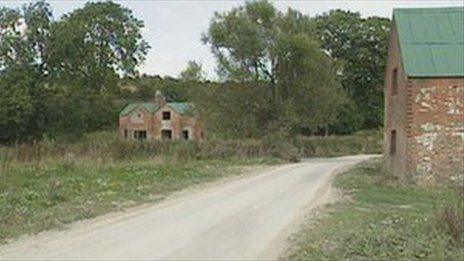
- Published22 January 2011